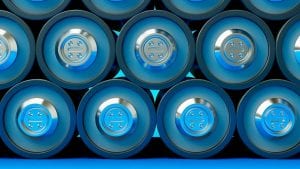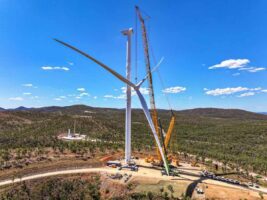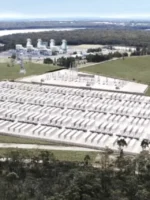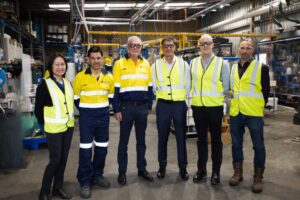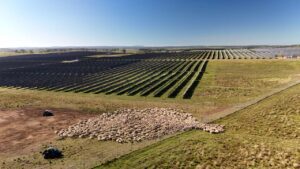The Clean Energy Finance Corporation (CEFC) is lending its brand to a new decarbonisation-focused Pacific Equity Partners (PEP) fund as it tries to influence a largely-privately owned corner of the Australian economy.
The second Secured Assets Fund (SAF II), which closed recently with a more-than-expected $1.4 billion, follows the mantra of the initial fund which invested in remote energy infrastructure company Zenith Energy, energy network operator WINconnect and smart metres business Intellihub.
But the fund isn’t limited to energy — its mandate extends to any mid-sector infrastructure-like company — and size is no object as the enterprise value of targets range from $50 million to $1 billion.
The CEFC is tipping in $80 million.
In April, it sank the same amount into a fund by healthcare-focused Sydney private equity firm Crescent Capital Partners.
Infiltrating private companies
The government clean energy financier may work with PEP investees to decarbonise, says PEP director Rosie Johnson.
“Pacific Equity Partners is delighted to welcome the CEFC to its investor network and be able to work with the CEFC to encourage its portfolio companies towards ambitious decarbonisation pathways,” she said in a statement.
“The CEFC brings a wealth of knowledge and expertise in the decarbonisation and clean energy sector and, together with the investment skills and capabilities of PEP, we see this as an exciting opportunity to prepare our portfolio companies for a transitioning and decarbonised economy.”
The SAF funds, as well as providing a circa-15 per cent return, have an environmental, social and governance (ESG) agenda, as the market swings from seeing ESG as a risk factor to putting premiums on companies that have strong climate and social credentials.
A CEFC spokesperson told RenewEconomy PEP will be the one working with its investees on decarbonisation, but the financier will “regularly engage with PEP on the progress of this and will share its experience in this area”.
Investing vs divesting
The SAF ll fund won’t rule out heavily polluting companies, says PEP managing director Andrew Charlier.
It will work with investees to understand carbon footprints and identify ways to halve Scope 1 and 2 emissions by 2030, reduce those to net zero by 2040, and look into Scope 3 emissions.
CEFC CIO for infrastructure Rory Lonergan expects the deal to influence the emissions profiles of businesses that use infrastructure owned by the SAF fund, for example as electric vehicle spots are added to hospital or airport car parks.
“This investment is about connecting the power and commitment of private capital to a diverse range of infrastructure assets which have significant potential to help Australia achieve net zero emissions by 2050,” he said in a statement.
The engage-versus-divest strategy is controversial.
The divestment campaign from investors was peaking in 2015 when an estimated $2.6 trillion in coal, tar sands and other polluting assets was flagged for divestment by 430 institutions.
But studies are increasingly showing that for socially responsible investors to have an impact, engaging is the best way to achieve change.
A study by two business professors at the University of Pennsylvania’s Wharton School and Stanford Graduate School of Business found that divesting high emitting businesses doesn’t have enough of an impact on that company to justify the act, compared to remaining on the board and demanding action.
Furthermore, divesting companies on the grounds of reducing their market value to force change and force other investment managers to realign to cleaner companies is problematic, as investors without ESG mandates can jump in, found a study by three professors at the Universities of Trento, Harvard and Chicago.
It also doesn’t work when the product, such as coal in 2022 when the Ukraine war caused prices to skyrocket, is in hot demand, they said.
But investors also need to take that action, rather than just say they will.
Last year Australian super funds sank $25 billion into coal, oil and gas companies before scrubbing their websites and corporate documents of claims around climate targets and engagement with investees following a crackdown by the corporate cop on greenwashing.


